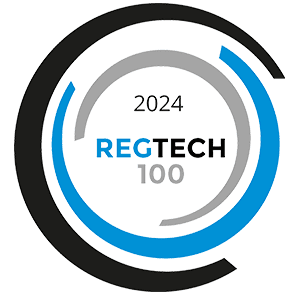On August 26, 2020, the SEC expanded the definition of Accredited Investor and Qualified Institutional Buyer to fall more closely in line with their intended goals: to identify investors who have sufficient knowledge and expertise to participate in investment opportunities that do not meet the rigorous disclosure and procedure requirements, and related investor protections, provided by registration under the Securities Act of 1933.
New Scope of Accredited Investor Guidelines
The original purpose of the definitions of Accredited Investor in Regulation D and Qualified Institutional Buyer in Rule 144A was to “encompass those persons whose financial sophistication and ability to sustain the risk of loss of investment or fend for themselves render the protections of the Securities Act’s registration process unnecessary.”
Prior definitions used wealth as the only means of determining “financial sophistication,” a delineation the commission has since determined was inadequate. Under the guideline expansion, the following categories are now included in the definition of Accredited Investor:
Natural persons with certain designated professional certifications
In a separate order, the SEC has designated holders in good standing of the Series 7, Series 65, and Series 82 licenses. The SEC may consider adding additional certifications or designations but will only do so after a notice and comment period.
Natural persons who are “knowledgeable employees” of a private fund
The definition of private fund is outlined in the Investment Company Act, with respect to investments in the private fund.
The natural persons referenced in this guideline includes trustees and advisory board members of the fund or affiliated advisers of the fund. It also includes non-clerical employees of the fund or an affiliated adviser of the fund that, in connection with their regular functions or duties, have participated in the investment activities of the private fund for at least 12 months.
Examples of such persons include:
- 501(c)(3) organizations and limited liability companies that are similar to a Massachusetts business trust, each with over $5 million in assets
- SEC- and state-registered investment advisers, exempt reporting advisers, and rural business investment companies (RBICs) investing on their own behalf
- Any entity, including Indian tribes, governmental bodies, funds, and entities organized under the laws of foreign countries, that owns “investments,” as defined in Rule 2a51-1(b) under the Investment Company Act, in excess of $5 million and that was not formed for the specific purpose of investing in the securities offered
- “Family offices” with at least $5 million in assets under management and their “family clients”
New Scope of Qualified Institutional Buyer Guidelines
Under the existing Rule 144A, qualified institutional buyers must manage at least $100 million in securities from issuers not affiliated with the institution.
The definition of Qualified Institutional Buyer has been amended to include:
- Limited liability companies and RBICs, if they meet the current threshold of owning or investing at least $100 million
- Any institutional investors included in the new “catch-all” category of institutional accredited investor that are not otherwise enumerated in the current QIB definition, provided they satisfy the $100 million threshold.
To review the full text of the SEC’s final rule, access it on the SEC’s website.
As guidelines continue to shift and change, firms may need additional support sifting through new regulations, ensuring they’re in compliance, and finding the best opportunities to support their clients.
If you need assistance in managing and complying with continually updating regulations, Red Oak’s compliance consulting team can help. We provide firms with the resources they need to stay up to date, compliant, and informed, as well as offering training resources to keep the firm’s entire team up-to-date.
Contact us today to learn more about how Red Oak compliance consulting can support your firm.
About Red Oak Compliance
Red Oak Compliance is the global advertising review software of choice in the financial services industry, serving clients with more than $19 trillion in assets under management. Red Oak’s advertising compliance review software offers quick implementation timelines, as well as agile technology that responds to client needs and is 100% Books and Records compliant. Our clients report 35% faster approvals and 70% fewer touches, with many experiencing even better results. Are you ready to minimize risk, reduce costs, and improve efficiency? Contact the Red Oak team to learn how.





